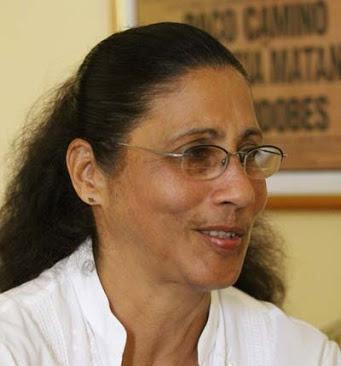
Cuba’s María Caridad Colón, who first took a place atop the Olympic podium for Latin American women, made news again June 10, when her candidacy for membership in the International Olympic Committee (IOC) was announced. If elected during the body’s virtual session in July, the Baracoa native, gold medal winner in the Moscow-1980 Games javelin throw, would be the third woman from south of the Rio Bravo to join the Committee, which today includes 100 individuals.
Two women, with careers that are more political than athletic, are the only female representatives from the region on the IOC: the synchronized swimmer from Aruba, Nicole Hoevertsz, who participated in the Los Angeles Games in 1984, in Central American and Caribbean competitions and other world events, became the permanent under-secretary of her country's Council of Ministers, while the former President of Costa Rica, Laura Chinchilla, recreationally cycles and swims.
As IOC President Thomas Bach stated in reference to the current candidacy, which includes Croatia's Kolinda Grabar-Kitarovic, Saudi Arabia's Reema Bandar Al-Saud, Mongolia's Battushig Batbold and Britain's Sebastian Coe, the latter in his capacity as President of World Athletics, "With the election of these five candidates, the Olympic movement would benefit from an extremely valuable range of skills and experience. We would also be increasing our female membership to 39.”
Cuba has had four seats in the IOC. Porfirio Franca y Álvarez de Campa was the first, between 1923 and 1938, Miguel Ángel Moenck y Peralta (1938-1969), Manuel González Guerra (1973-1993) and Reynaldo González López (1995-2015).
Today there are more than 200 National Olympic Committees connected to the international governing body, but only 36%, 74, have at least one seat. Five nations - Canada, the United States, Switzerland, France and China - have three IOC members, while 16 others have two representatives.
It does not take much to conclude that it is very difficult to secure a spot in Lausanne, where the IOC was born, thanks to the efforts of Frenchman Pierre de Coubertin, on June 23, 1894.
The IOC has a governing document, which serves as its normative regulator, c the Olympic Charter, which establishes requirements for members.
The Charter stipulates that a majority of members (up to 70), need not have a specific function or position, but in this case, no country can have more than one such representative; while 15 seats are designated for active athletes, and an equal number of presidents or leaders at the highest level of international federations, associations or other organizations recognized by the IOC, and another 15 for those who hold positions of continental or world leader of associations. Among these categories, no nation may have more than one representative, while members serve a term of eight years, with retirement age set at 70.
There are many honorary members, now numbering 48. For such a distinction, the Olympic Charter requires more than ten years of exceptional service, although such members are generally distinguished persons from outside the IOC. There are currently only two: former U.S. Secretary of State, Henry Kissinger, and the Senegalese Youssoupha Ndiaye. Also stipulated in the Charter is an Honorary President, a position occupied by previous IOC chief, Belgian Jacques Rogge. All with voice, but no vote.
Among such eminent company, Cuba's first city, Baracoa, looks to be present.






